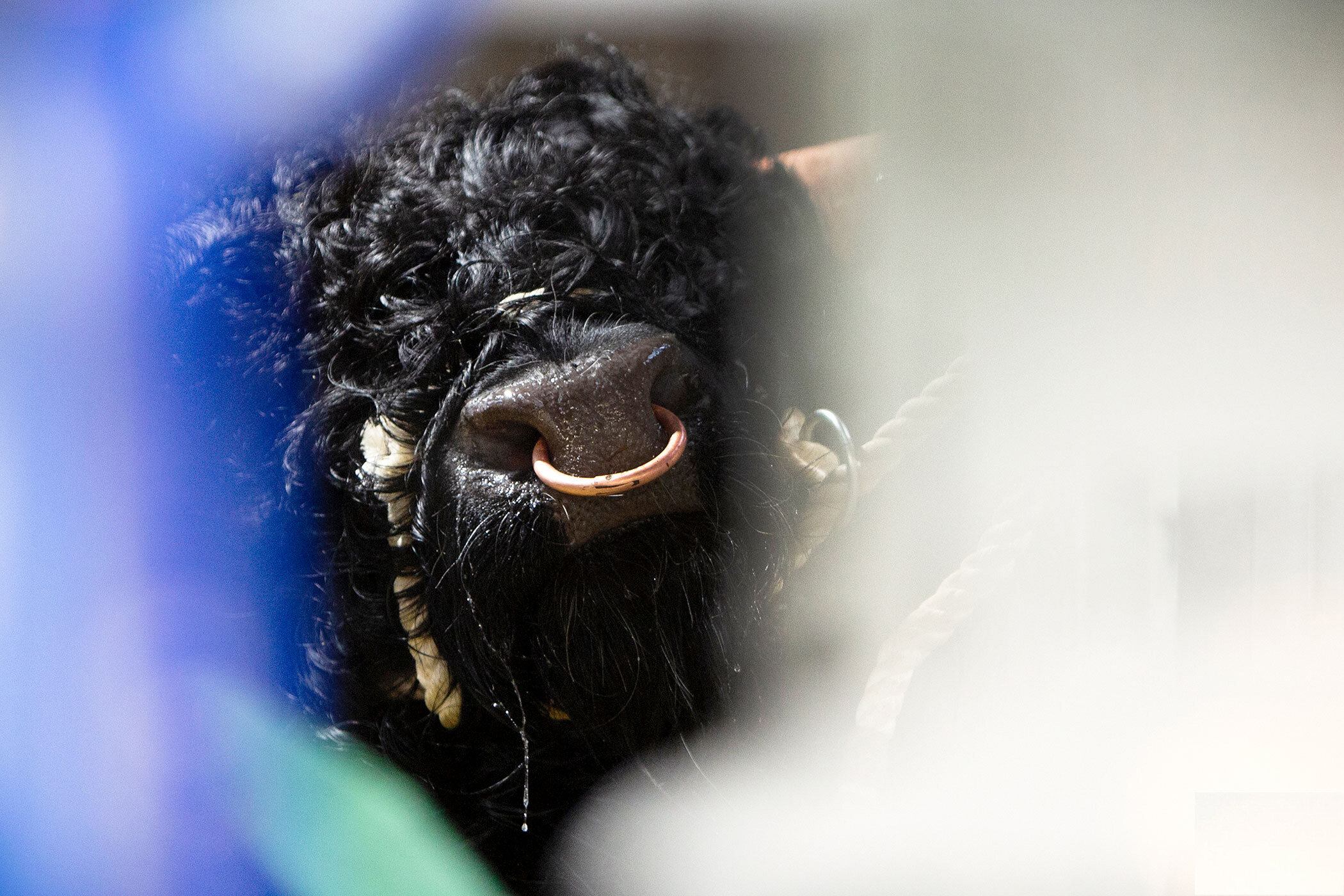
One of the oldest registered breeds of cattle in the world
And a famous breed recognised globally
The Highland breed of cattle has a long and distinguished ancestry, not only in its homeland of western Scotland, but also in many far-flung parts of the world. It is one of the oldest registered breeds of cattle in the world and one of Britain's oldest, most distinctive and best-known breeds.
Written records go back to the 18th century and the Highland Cattle Herd Book, first published in 1885, lists every pedigree since that time. With a long, thick, flowing coat of rich hair and majestic sweeping horns, the Highlander breed has remained largely unchanged over the centuries. Although the classic image of a Highland cow today is red they also come in other shades including yellow, brindle, dun, white and also black, the breed’s original colour.
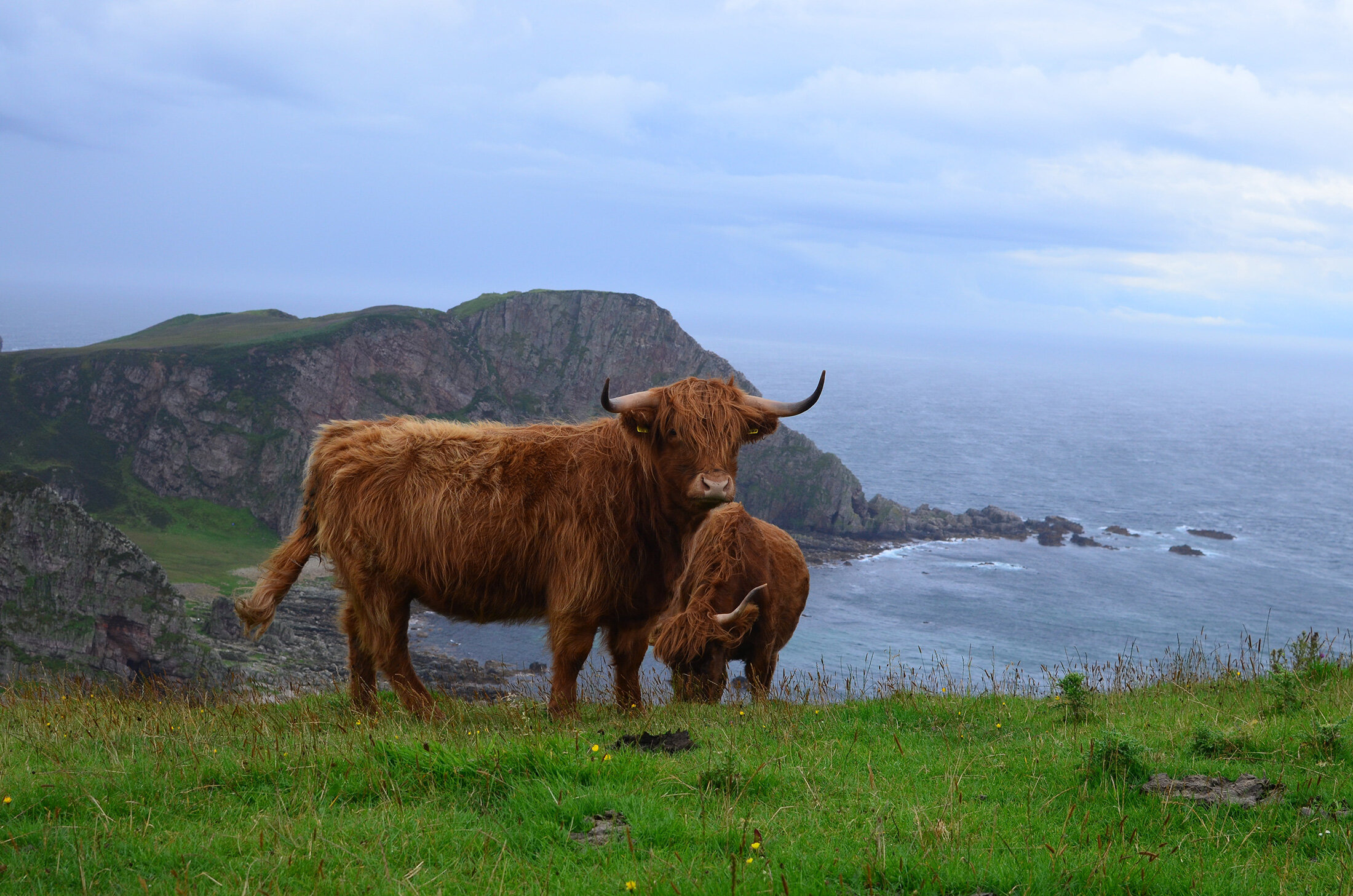
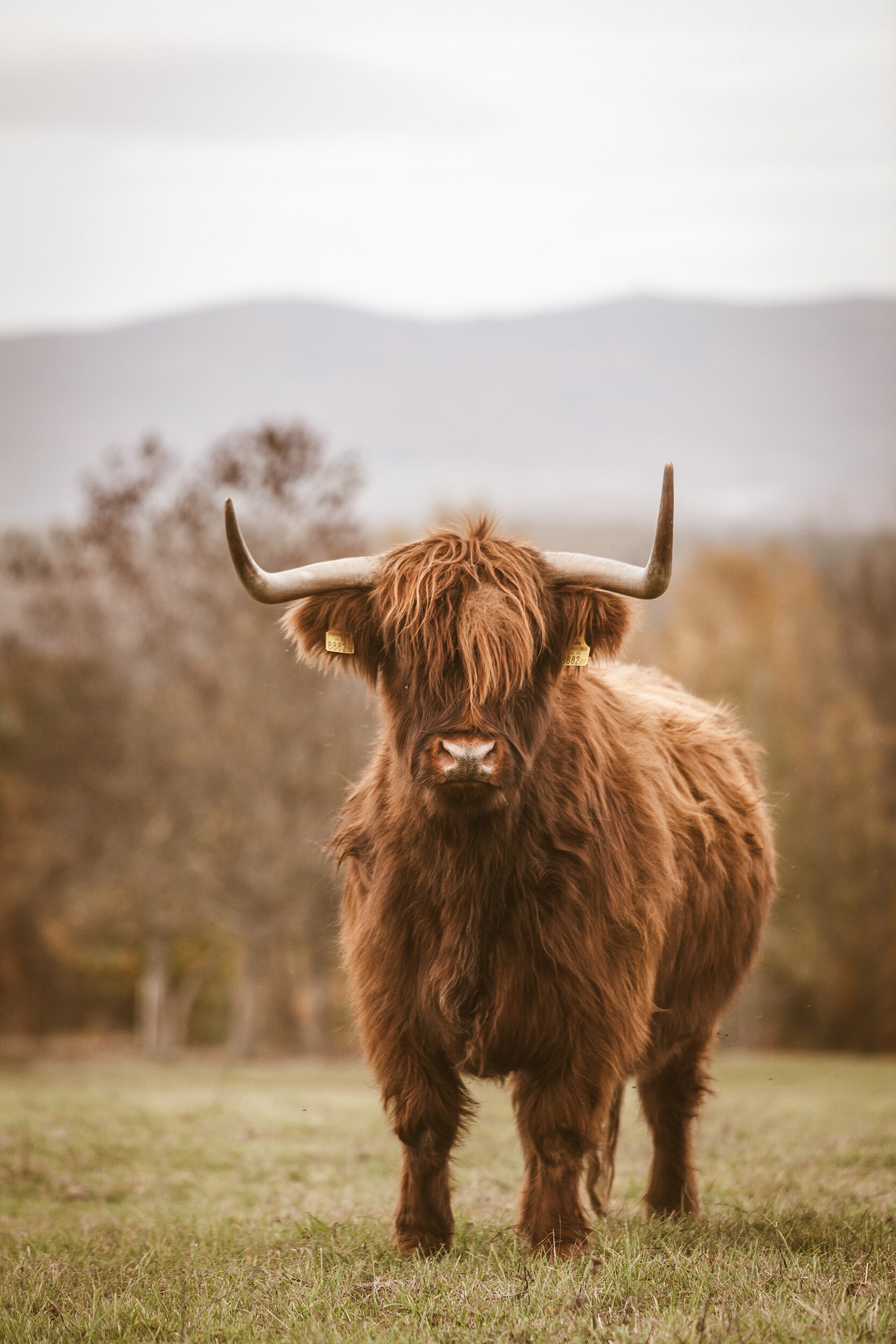
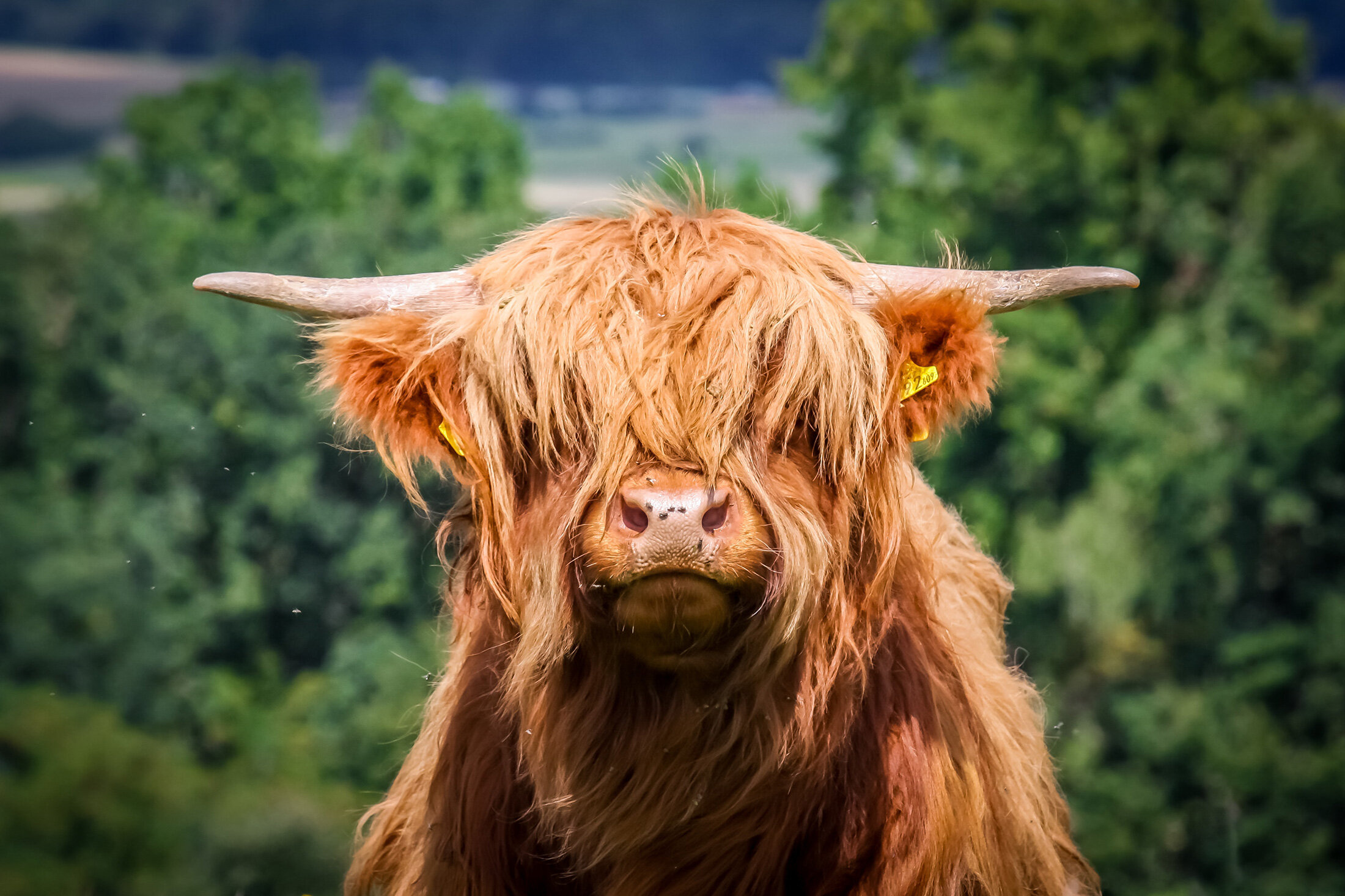
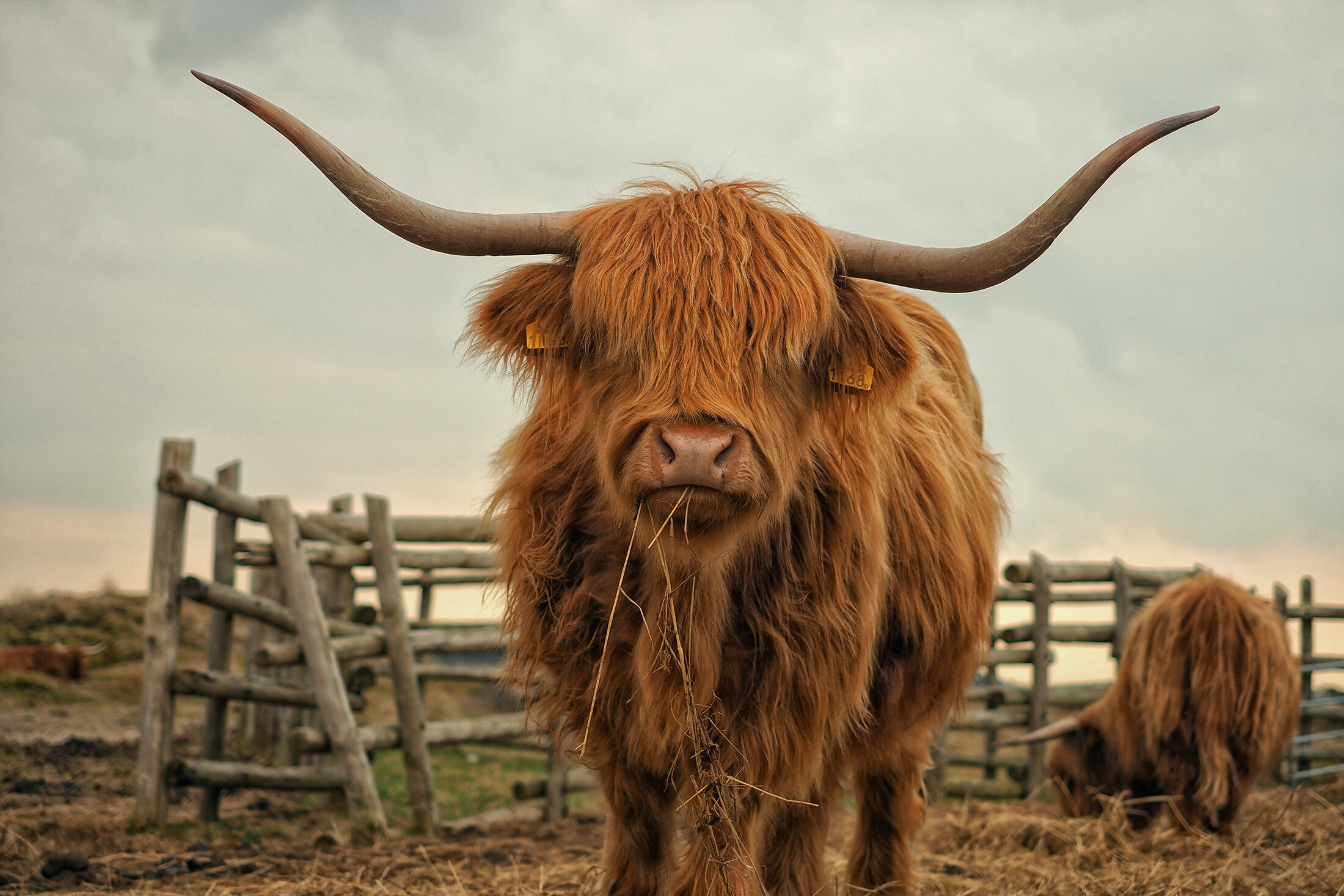
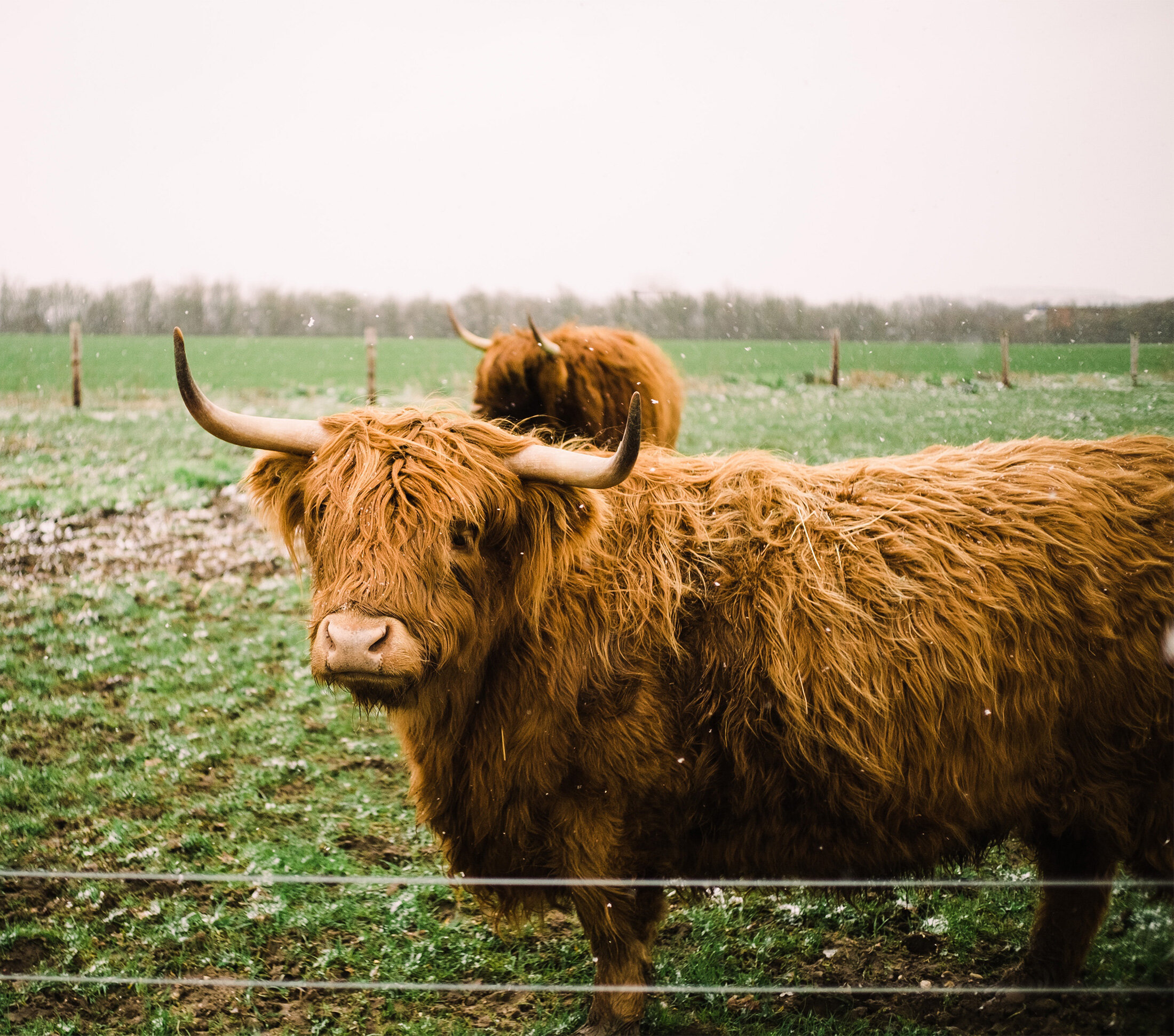
The Highland Cattle Herd Book
A permanent record of the breed dating back to 1885
The Highland Cattle Society continues to publish hard copies of the Herd Book which gives you a permanent record of pedigrees and a fascinating insight into our historic breed. You can request copies from our office, and they will enable you to trace animals back to their origins through each year’s Herd Book.
In the British Isles, you can find folds flourishing on many different types of ground, from the slopes of the Sussex Downs in the south across to the East Anglia fenlands and north to the windswept machars of the Outer Hebrides.
But it is on poor mountain land with high annual rainfall and bitter winds that Highland Cattle thrive and breed – an environment where no other cattle could exist. Making the most of poor forage, calving outside and seldom housed, they make a real economic contribution to hill and upland areas. They can also be finished in a more conventional manner in well-ventilated barns.
The breed is exceptionally hardy with a natural and unique ability to convert poor grazing efficiently. They are remarkable for their longevity with many Highland cows breeding at over 18 years of age and having borne fifteen calves. They are great mothers.
The versatility of the Highlander has led to a great upsurge in exports to the USA, Canada, Australia, New Zealand, Norway, Sweden, Denmark, Finland, Germany, Austria, Holland, South America and other countries across the world.
"Guaranteed Pure Highland Beef TM comes wholly and exclusively from 100% pure pedigree Highland Cattle and commands a significant premium in specialist retail butchery."
Highland Cattle are naturally reared and thrive in the hills and uplands of Britain. Without needing any intensive farming, they produce an excellent modern beef carcass with lean, well-marbled flesh that ensures tenderness and succulence combined with a very distinctive flavour. Beef from Highland Cattle is healthy and nutritious with lower levels of fat and cholesterol, and a higher protein and iron content than other beef.
The unique attributes of the pure Highland cow make her the first choice for the breeding of commercial hill cows. These can be sired by many different breeds of bull with a Beef Shorthorn bull being a commonly-used sire. More recently, excellent results have been obtained using continental sires.
The cross Highland cow retains the inherent hardiness from the pure Highlander plus that vital ingredient - hybrid vigour. The cross Highlander has the milk to rear the continental calf with the high beefing potential demanded by today's market. Both the pure Highlander and the first cross Highlander have the prime ability to convert poor hill grazing into quality beef carcasses.
Register of appendix females
The Highland Cattle Herd Book has an appendix register for Highland females found to be of true Highland type but of unknown or unproven pedigree. No male progeny out of appendix females are eligible for registration in the appendix registers or the Herd Book.
Moreover, only female progeny of appendix cattle can be accepted into the Herd Book. Female calves from Appendix B cattle by a registered Highland bull can be entered into appendix A of the Herd Book. In addition, female calves from appendix A cows by a registered Highland bull are eligible for entry into the Herd Book.
To register an appendix female
Send photographs of the animal including a head shot showing the ear-tag number and a full body shot to us along with the registration form.
Highland females entered in the appendix register whose pedigrees are subsequently established cannot be re-entered in the Herd Book proper. Highland females entered in the appendix register are also not eligible for use as donor cows for fertilised embryo transfer programmes.

